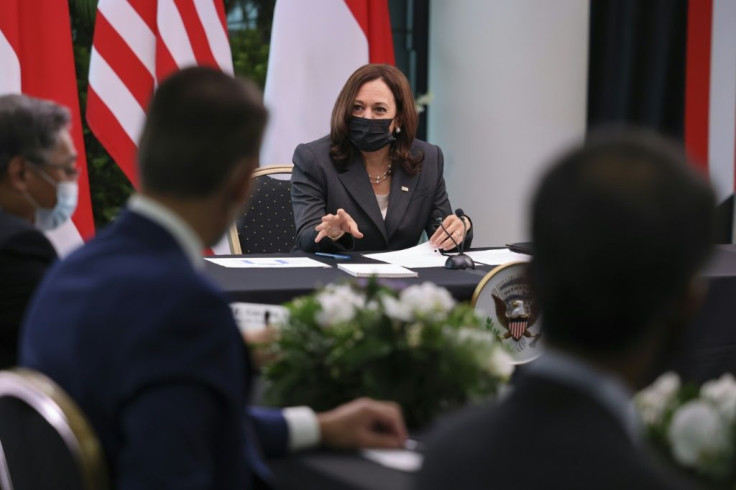Harris Holds Singapore Talks As US Tackles Chip Shortage
Vice President Kamala Harris urged greater international cooperation to bolster supply chains Tuesday during talks in Singapore, as the United States seeks to tackle a global microchip shortage.
The chip crunch was initially triggered by higher sales of consumer electronics during the coronavirus pandemic but has been exacerbated by supply chain problems caused by disruptions at key plants.
The auto sector has been hardest hit, with car giants including Volkswagen and Toyota cutting output, but manufacturers of smartphones and consoles have also warned of problems.
Asia is the centre of the chip industry and during a visit to Singapore, Harris said in a meeting with officials and executives that the pandemic highlighted the vulnerability of global supply chains.
"When we look at the disruption to the supply chain, this is an issue that requires all nations... (to) work together to coordinate," she said.
"So there must be some collaboration, and at least some coordination, around what we do to meet the demand."
The pandemic has also hit supply chains by disrupting the vital global shipping network.
The chip shortages have triggered calls in Western countries to strengthen their domestic semiconductor industries to protect against future shocks.

But at Tuesday's talks, Singapore Trade Minister Gan Kim Yong warned "there are limits and challenges to what a country can do on its own... Electronics and semiconductor supply chains are complex and need to be globally optimised."
The discussion was attended by executives from companies including GlobalFoundries, a US-headquartered chipmaker with factories in Singapore, US asset manager BlackRock, and Singapore state investor Temasek, Bloomberg News reported.
Singapore is home to semiconductor factories, as well as one of the world's biggest ports.
GlobalFoundries recently announced it would build a $4 billion plant in the city-state, scheduled to start operations in 2023.
The business talks were part of a trip to Asia that will also see Harris head to Vietnam.
Vietnam has seen increasing foreign investment in its chip industry.
US chipmaker Intel opened a $1 billion factory a decade ago in commercial hub Ho Chi Minh City and invested an additional $475 million in January.
Some key Asian chip-producing countries have faced fresh virus outbreaks in recent months, prompting warnings that curbs could hit their semiconductor industries.
© Copyright AFP 2024. All rights reserved.





















